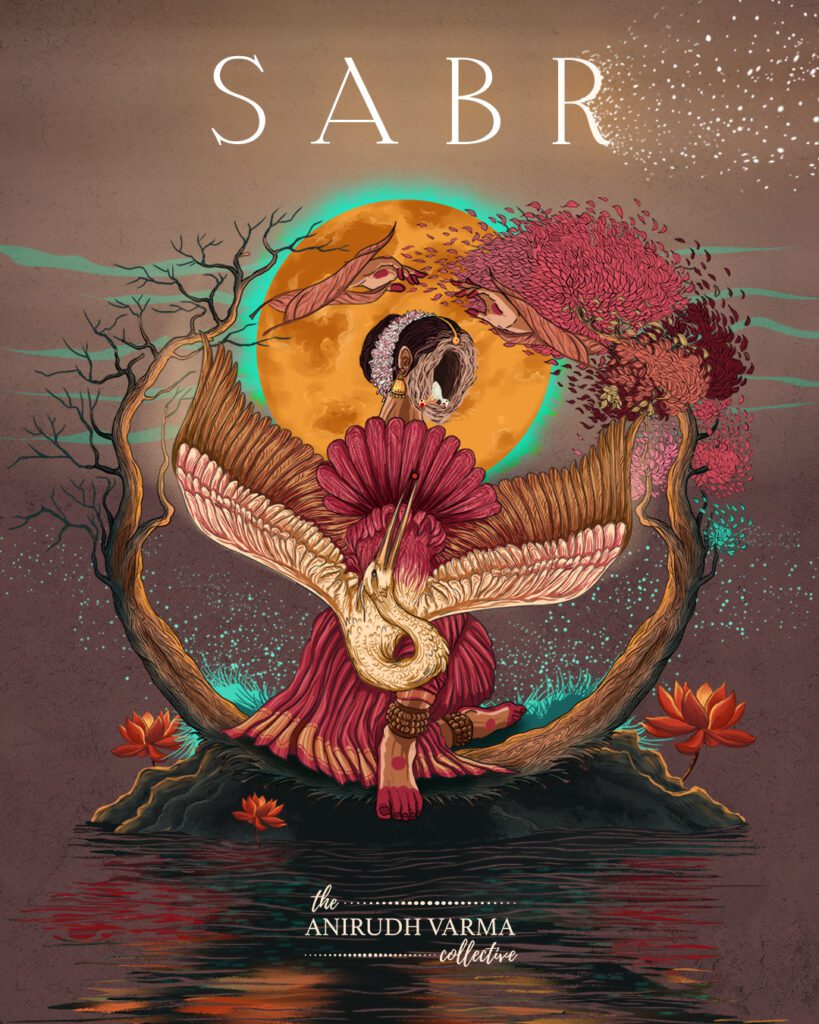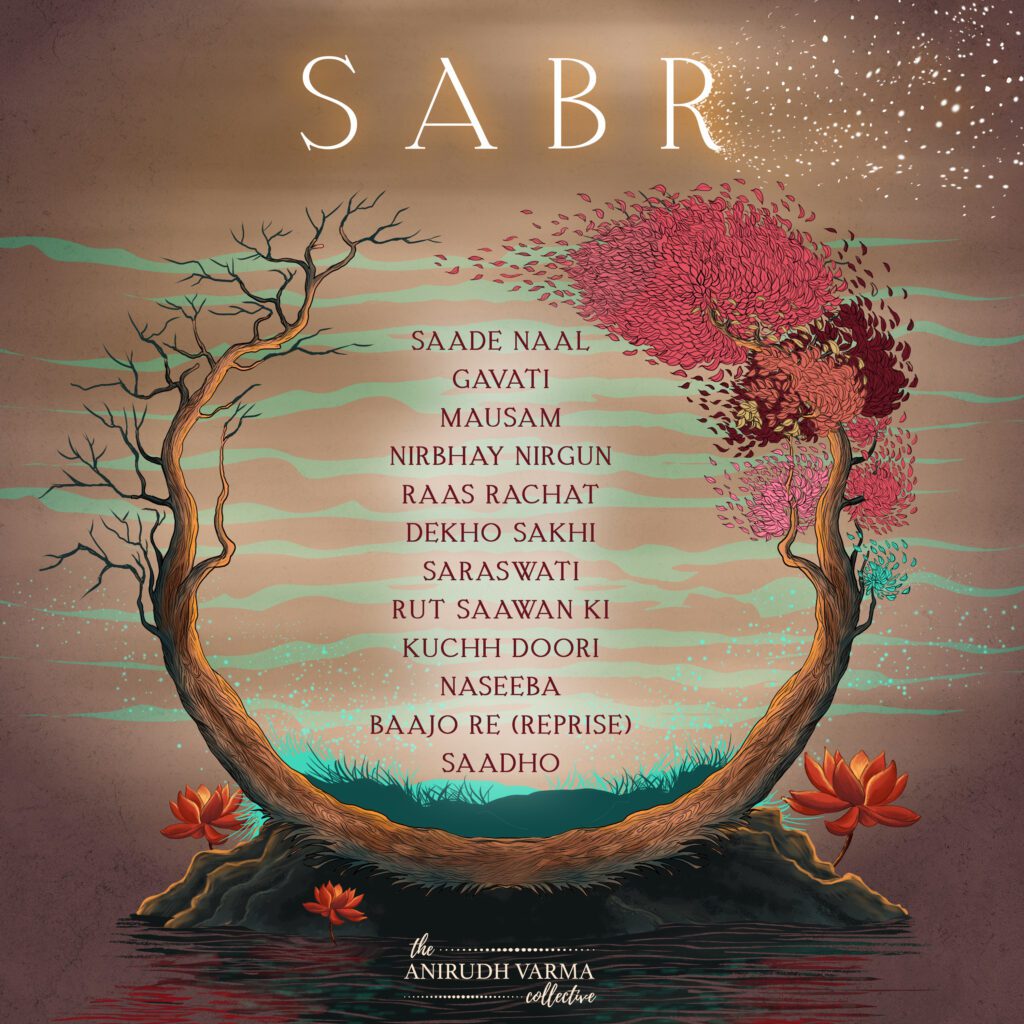SABR is the third studio album by Anirudh Varma Collective. The album features almost 50+ artists across India. It encapsulates themes of fate, determination, celebration, love and longing – the word ‘SABR’ holds all these themes together.
As a 12-track record it is an amalgamation of classical and original compositions alongwith the works of Kabir.
The haunt of humankind is that eternal search for God, yet God is far. Kabir isn’t holy. Kabir is an idea of a man humbly seeking for God. We’re all Kabir if we seek the divine. The longing for divine is a romantic and spiritual concern. The threads of life transcend from the musical to the ineffable on this album.
‘God is the breath of all breath…’
It is advisable to listen to the songs in a chronological order because each track complements and builds to the other.

The album kicks off with an ambience that transcends into an interplay of multiple instruments crashing into a solid chorus on the opener Saade Naal.
There’s a deep tension on SABR. This tension isn’t a longing for a lover, but instead a longing for a union with the source of our creator. The lyrics signify thus on Dekho Sakhi as the narrator complains of Krishna who doesn’t agree. The bhaav of this composition moves me beyond words…
The seekers seek but God doesn’t agree. God’s naughty. God is cruel. Nothing comforts when God doesn’t agree…
Nirbhay Nirgun preaches fearlessness as an aid towards spiritual realization. The absence of fear is foremost for the presence of God.
The Supreme Soul is seen within the soul,
The Point is seen within the Supreme Soul,
And within the Point, the reflection is seen again.
Kabîr is blest because he has this supreme vision!
The synergy of all the compositions that went in the making of ‘SABR’ produce a supremely moving effort.
Mausam and Rut Sawan Ki are melodic masterpieces that make one wonder about the movements of clouds and change of seasons.
Saraswati is a modern feat. Some compositions are so moving that all one can manage to say is all too less for the artists’ effort. Naseeba is about being content with your fill of the share. Baajo Re is an ode to joy, music, celebration and ecstasy.

यादों की धीमी सी खुशबुएं हैं बाकी
The slow scent of memories is left still
बीती रातों की करवटे भी नापी
I have measured the ties of gone nights
कुछ दूरी तय कर ली
Some distances I have covered
कुछ दूरी है बाकी
Some distances are left still
Kuch Doori is a reminder of that space between a yearning and another. That space between a desire and another. That space between a dream and another.
If we could express it all in words we wouldn’t have music. Music is ineffable and sometimes attempts at explaining it in words fail even for a listener like me.





























